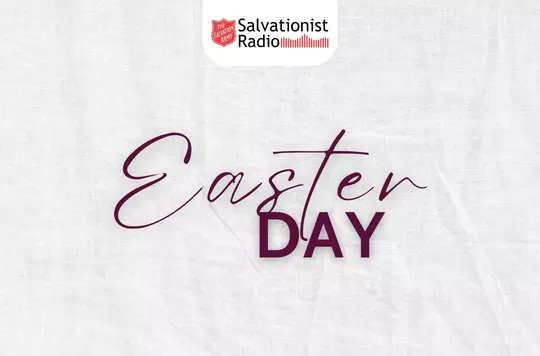19 April 2025
How can we show Jesus' courageous love to others?
Major Lynne Shaw

Major Lynne Shaw challenges us to see the face of God in strangers.
In An Altar in the World, Barbara Brown Taylor challenged her readers to see the face of God in the people we don’t know, recognise or usually have anything to do with. We’re familiar with the call to love our neighbours and our enemies, but what about loving the stranger?
In Deuteronomy 10:12 we read: ‘What does the Lord your God require of you?’ (New Revised Standard Version Updated Edition). That question is echoed in Micah: ‘He has told you, O mortal, what is good, and what does the Lord require of you but to do justice and to love kindness and to walk humbly with your God?’ (6:8 NRSVUE). The answer is a two-parter: we’re called to act like God, and to be humble in our daily living, always in the presence of God. This is borne out in Deuteronomy 10:17–19: ‘For the Lord your God is … mighty and awesome ... not partial and ... executes justice for the orphan and the widow, and ... loves the strangers, providing them food and clothing. You shall also love the stranger, for you were strangers in the land of Egypt’ (NRSVUE).
We see God’s action in the world, and then we’re called to do the same, humbly remembering that we were once in the same boat. That phrase might make us think of the treatment of asylum seekers, those looking for hospitality and safety in a land that has more than they have.
To deny others what we have when they are in need is the sin of Sodom. In Ezekiel 16:49, we read: ‘This was the guilt of your sister Sodom: she and her daughters had pride, excess of food, and prosperous ease but did not aid the poor and needy’ (NRSVUE).
Love, in Deuteronomy 10:18, is the Hebrew word āhaḇ. It encompasses many kinds of love, but it’s the opposite of hate. In this verse we see God showing āhaḇ to the strangers by providing food and clothing for them. This love is a verb, an action revealing the heart of God for people the Hebrews would have considered outside of God’s care and love.
In the Book of Job, Job reminisces and accounts for his actions: ‘I was a father to the needy, and I championed the cause of the stranger’ (29:16 NRSVUE). He adds: ‘The stranger has not lodged in the street; I have opened my doors to the traveller’ (31:32).
Job recognises what God requires, no doubt by having observed what God does. In Psalm 146 the psalmist lays out for us what God does: ‘The Lord watches over the strangers; he upholds the orphan and the widow’ (v9 NRSVUE).
There are still people among us today who don’t seem to fit or belong. People still talk about outsiders or foreigners. We’re all very aware of the newbies at school, at work or in our communities.
As God loves strangers, we’re called to do the same, remembering that we were also strangers at one time or another. It’s a call to remember that none of us truly owns anything, that we were newbies once, that we know what it’s like to feel like we don’t belong.
Out of this remembering comes an opportunity to show compassion, to love as an action, revealing the heart of God. Showing godly āhaḇ to others will always be not only what God would do, but what we are required to do as well.
Who have you noticed or believed doesn’t belong? Can you see God’s face in them? How can God’s merciful, generous, courageous love be shown by your actions?
Written by

Major Lynne Shaw
Editorial Assistant, Publishing Department
Discover more

Major James Bryden reflects on the courage, power and cleansing found in the blood of the Lamb.

Commissioner Jenine Main calls us to follow Jesus’ example and be bold in our faith.

Salvationist Radio shares an Easter Day meditation as we reflect on the hope offered through Jesus' resurrection.

Devotions, articles and resources to help you journey through Lent and celebrate Easter.